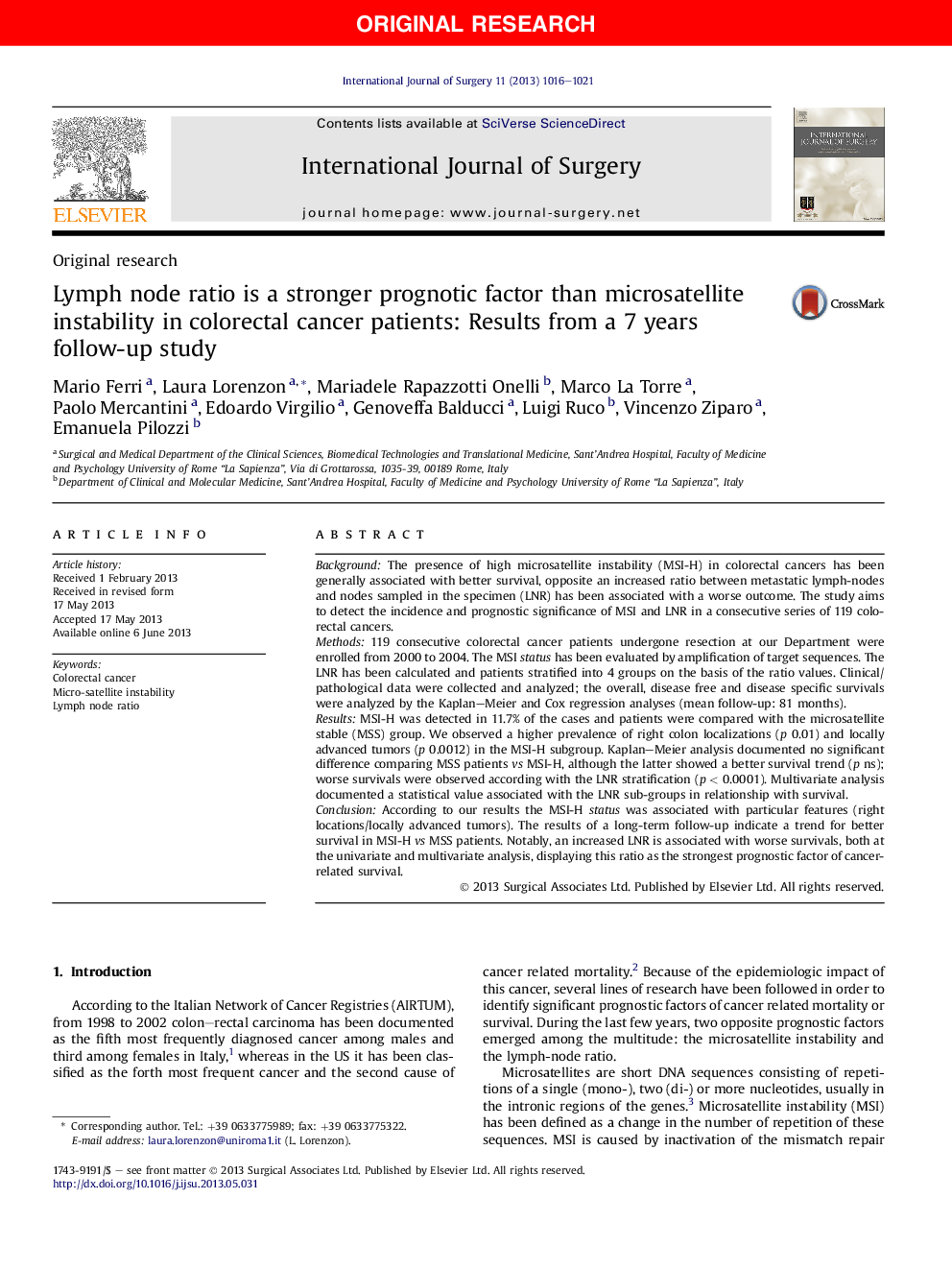| کد مقاله | کد نشریه | سال انتشار | مقاله انگلیسی | نسخه تمام متن |
|---|---|---|---|---|
| 4286775 | 1611999 | 2013 | 6 صفحه PDF | دانلود رایگان |

BackgroundThe presence of high microsatellite instability (MSI-H) in colorectal cancers has been generally associated with better survival, opposite an increased ratio between metastatic lymph-nodes and nodes sampled in the specimen (LNR) has been associated with a worse outcome. The study aims to detect the incidence and prognostic significance of MSI and LNR in a consecutive series of 119 colorectal cancers.Methods119 consecutive colorectal cancer patients undergone resection at our Department were enrolled from 2000 to 2004. The MSI status has been evaluated by amplification of target sequences. The LNR has been calculated and patients stratified into 4 groups on the basis of the ratio values. Clinical/pathological data were collected and analyzed; the overall, disease free and disease specific survivals were analyzed by the Kaplan–Meier and Cox regression analyses (mean follow-up: 81 months).ResultsMSI-H was detected in 11.7% of the cases and patients were compared with the microsatellite stable (MSS) group. We observed a higher prevalence of right colon localizations (p 0.01) and locally advanced tumors (p 0.0012) in the MSI-H subgroup. Kaplan–Meier analysis documented no significant difference comparing MSS patients vs MSI-H, although the latter showed a better survival trend (p ns); worse survivals were observed according with the LNR stratification (p < 0.0001). Multivariate analysis documented a statistical value associated with the LNR sub-groups in relationship with survival.ConclusionAccording to our results the MSI-H status was associated with particular features (right locations/locally advanced tumors). The results of a long-term follow-up indicate a trend for better survival in MSI-H vs MSS patients. Notably, an increased LNR is associated with worse survivals, both at the univariate and multivariate analysis, displaying this ratio as the strongest prognostic factor of cancer-related survival.
Journal: International Journal of Surgery - Volume 11, Issue 9, November 2013, Pages 1016–1021